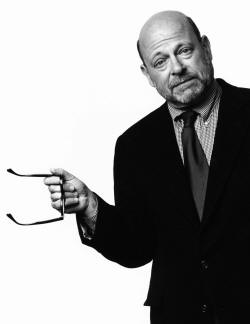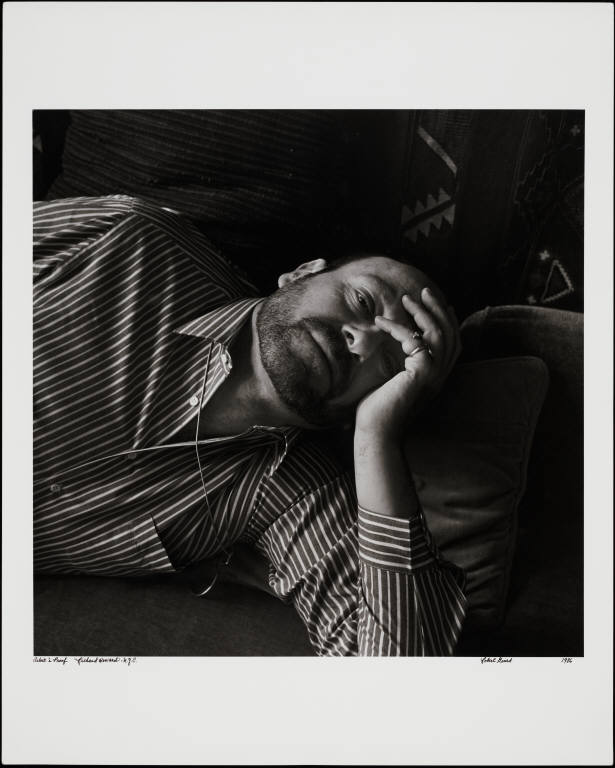

Partner Sanford Friedman, Husband David Alexander
Queer Places:
Columbia University (Ivy League), 116th St and Broadway, New York, NY 10027
 Richard Joseph Howard (October 13, 1929 – March 31, 2022;[1] adopted as Richard Joseph Orwitz) was an American poet, literary critic, essayist, teacher, and translator. He was born in Cleveland, Ohio, and was a graduate of Columbia University, where he studied under Mark Van Doren,[2] and where he was an emeritus professor. He lived in New York City.
Howard was gay, a fact that comes up frequently in his later work.[8] He was out to some degree since at least the 1960s, when he remarked to friend
W.H. Auden that he was offended by
a fellow poet's use of Jewish and gay epithets, "since [he was] both these
things", to which Auden replied, "My dear, I never knew you were Jewish!"[7]
Sanford Friedman was
a friend to many noted artists, among them Lee Krasner and Fritz Bultman,
and for several years Friedman was the companion of Richard Howard.
Richard Joseph Howard (October 13, 1929 – March 31, 2022;[1] adopted as Richard Joseph Orwitz) was an American poet, literary critic, essayist, teacher, and translator. He was born in Cleveland, Ohio, and was a graduate of Columbia University, where he studied under Mark Van Doren,[2] and where he was an emeritus professor. He lived in New York City.
Howard was gay, a fact that comes up frequently in his later work.[8] He was out to some degree since at least the 1960s, when he remarked to friend
W.H. Auden that he was offended by
a fellow poet's use of Jewish and gay epithets, "since [he was] both these
things", to which Auden replied, "My dear, I never knew you were Jewish!"[7]
Sanford Friedman was
a friend to many noted artists, among them Lee Krasner and Fritz Bultman,
and for several years Friedman was the companion of Richard Howard.
Richard Howard was born on Oct. 13, 1929, in Cleveland to an impoverished Jewish woman who put him and a younger sister up for adoption. He never learned his biological mother's name. His adoptive mother, Emma Joseph, was married three times. Howard was the Anglicized version of one of her husband's surnames. Richard grew up without a steady father figure, and his sister was adopted by a different family. He never learned her name, either. He grew up in a mansion that belonged to his adoptive maternal grandmother, whose late husband had been a successful merchant. He enjoyed telling the story of how he learned French: On a family car trip to Miami when he was 5, one of his cousins, to pass the time, taught him the French words for everything they saw out the window. De Gaulle, on hearing the story, asked Howard how long it took to learn the language. Five days, mon general, he answered. Howard attended the progressive Park School in Cleveland Heights. After graduating from Shaker Heights High School, outside Cleveland, he attended Columbia University, where he was editor of The Columbia Review. His classmates included Allen Ginsberg, John Hollander and Robert Gottlieb, who, as an editor at Simon & Schuster, would later commission him to translate the second and third volumes of de Gaulle's war memoirs. After receiving a bachelor's degree in 1951 and a master's degree in 1952, Howard studied modern French poetry at the Sorbonne on a French government fellowship. He returned to the United States in 1954 and for the next four years worked as a lexicographer in Cleveland and in New York for the World Publishing Company, writing definitions for a new dictionary, a job he described as drudgery, to the point of dentistry. But the work had its uses, he acknowledged. As he told the journal Translation Review in 1982, I am grateful to lexicography, insofar as I practiced it, for inculcating, or at least suggesting, habits of precision and concern with the quality of language on a level that is very important for both poetry and translation, an exacting feeling for the physical shape and size and movement of words as well as for their sense.

by Robert Giard
His first book, Quantities (1962), showing the marked influence of W.H. Auden, gathered poems from the previous 15 years. It won respectful reviews for its high intelligence and precision of language. I had found Auden for myself back at Columbia along with Wallace Stevens, whom John Hollander had shown to me; these were the poets whose poems I seemed to be rewriting for so many years, he told the poet J.D. McClatchy in an interview for The Paris Review in 2004. The more confessional manner of The Damages (1967) won Howard a larger following, and the dramatic monologues of Untitled Subjects put him in the first rank of younger American poets. Harper's Magazine called his monologues inspired blends of the historical and the wholly invented. Howard's reputation was bolstered by his translations and critical essays. Simultaneously with Untitled Subjects, a wide-ranging collection of his criticism appeared, Alone With America: The Art of Poetry in the United States Since 1950. A year later, the publishing house George Braziller installed him as editor of its series Braziller Poets. In that position he advanced the careers of several younger poets, notably Frank Bidart, Cynthia MacDonald, Charles Simic and McClatchy. He continued to experiment with the dramatic monologue and the poem of direct address throughout his career. In Misgivings (1979), the sequence Homage to Nadar staged poetic confrontations with a long list of artistic figures who had sat for the 19th-century photographer Nadar. The poem Richard Wagner begins: No props. For once we have you unstaged, ideal genius at forty without wadded-silk dressing gown, wine-velvet beret, a villa filled with idols. In A Progressive Education (2014), his last published collection, Howard imagined, in verse form, letters written collectively by a class of sixth graders in Sandusky, Ohio, circa 1950. Disturbed by a science experiment with mice, the students write, in A Proposed Curriculum Change: Is all Science a history of death? Maybe we'll learn in Seventh Grade that no Fate is worse than Death after all, and that Life will be our Fate. His other poetry collections included Lining Up (1984), Trappings (1999), Fallacies of Wonder (2003) and The Silent Treatment (2005). A second volume of criticism, Paper Trail: Selected Prose 1965-2003, was published in 2004.
Howard, the poet laureate of New York State from 1993 to 1995, was at various times the poetry editor of The Paris Review and Western Humanities Review. After teaching English at the University of Houston for 10 years, he became professor of writing at Columbia in 1997. He lived in Greenwich Village. He and his husband David Alexander had been together for many years when they married in 2012.
Howard died in New York City on March 31, 2022. His husband, David Alexander, said the cause was complications of dementia. He was 92.
My published books: